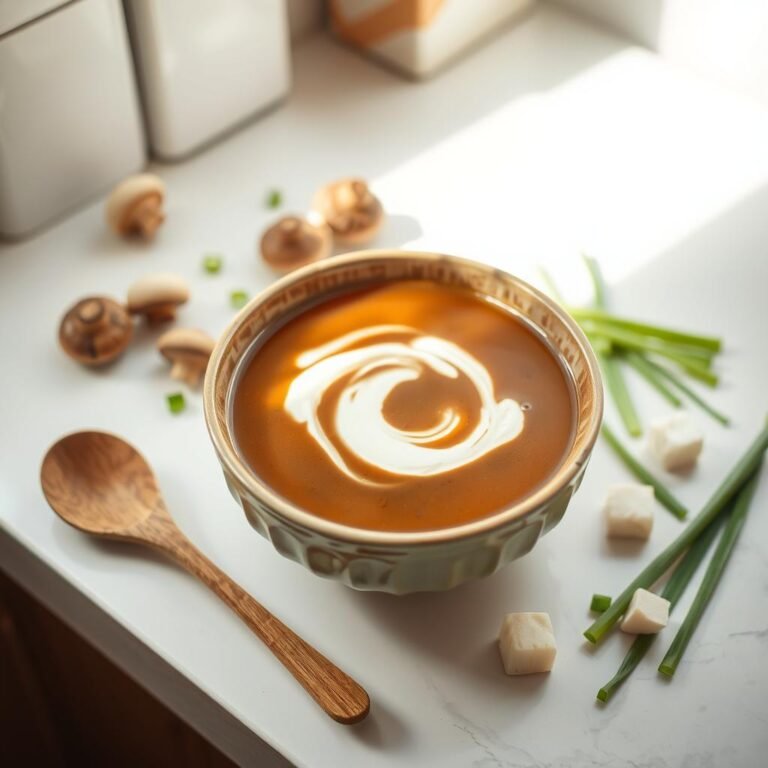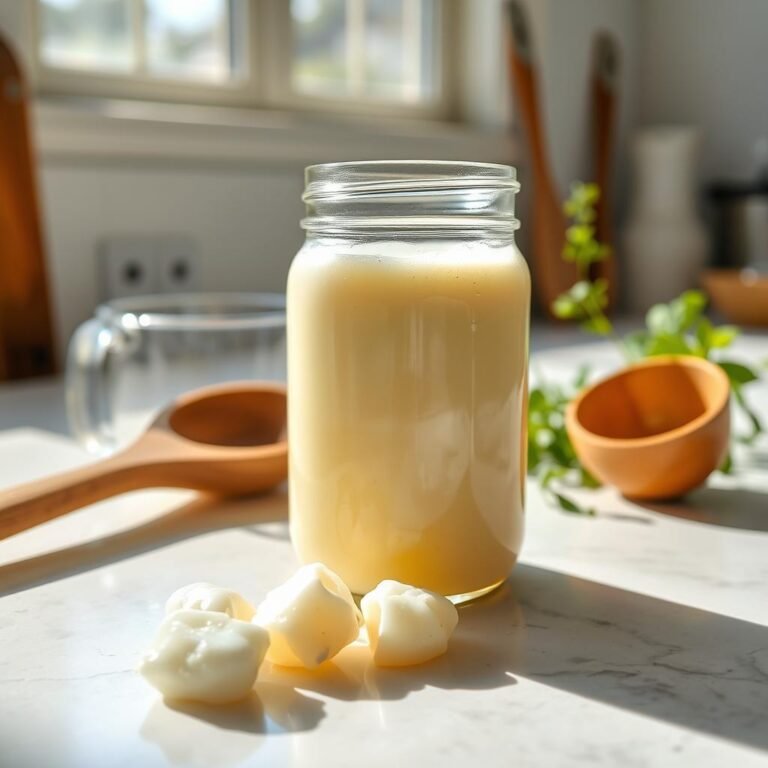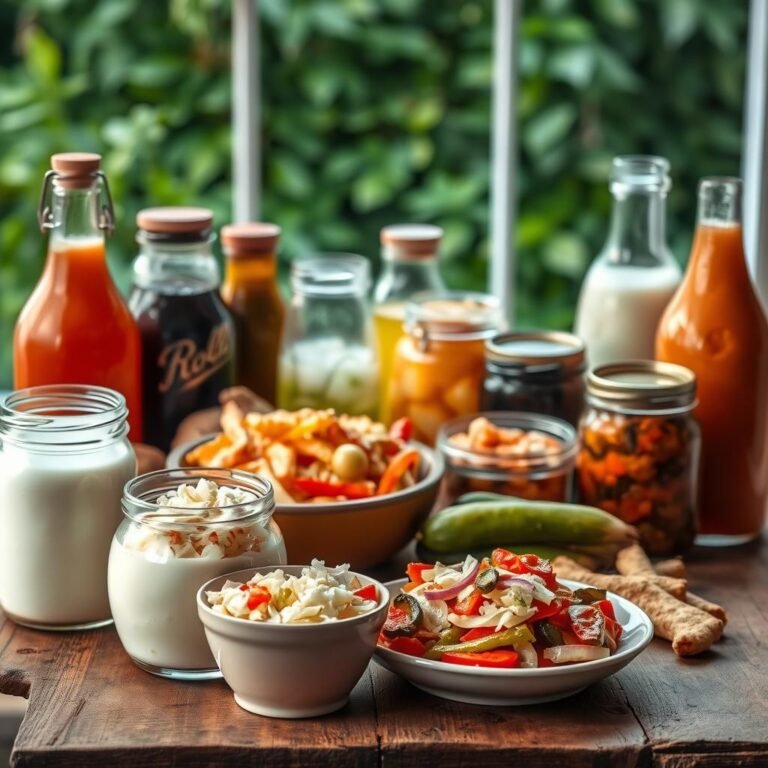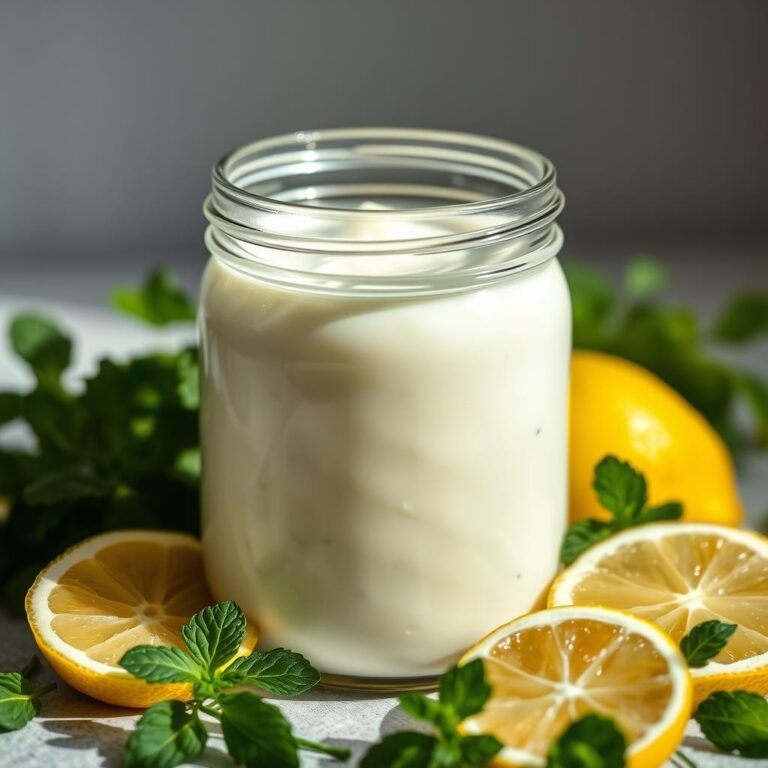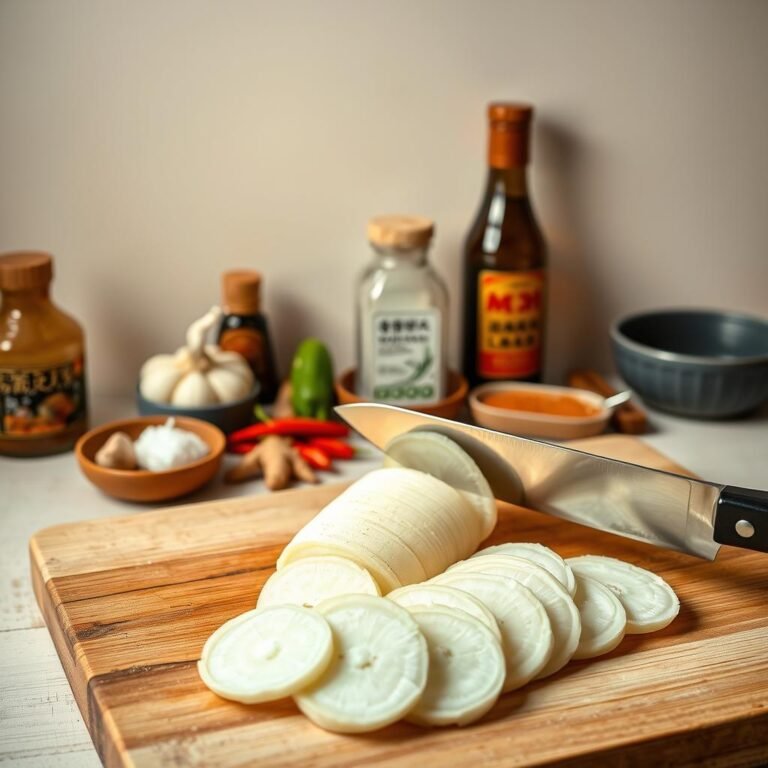The Benefits of Fermented Daikon
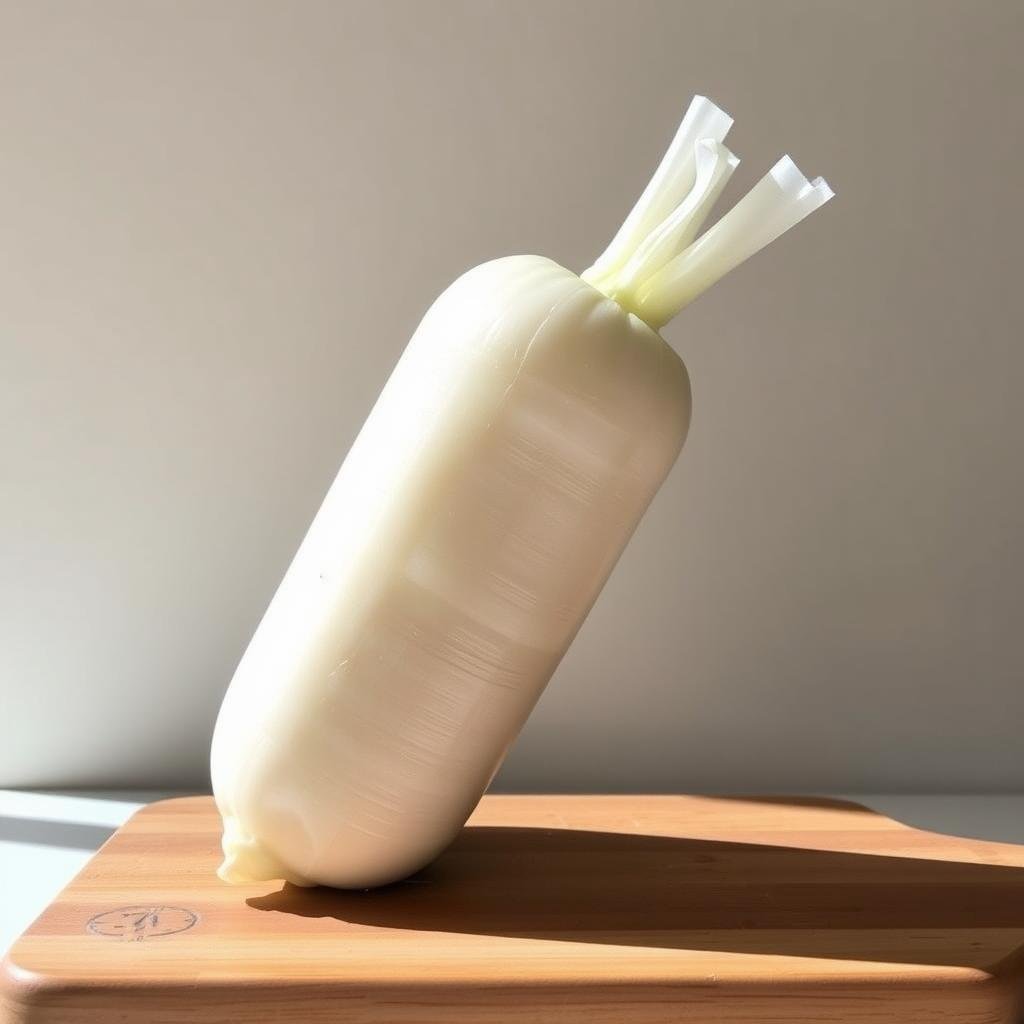
Start a journey to learn about fermented daikon. It’s an Asian food that’s becoming popular worldwide. It’s made from daikon radish and natural seasonings. This mix is fermented, making it a natural probiotic.
Fermented daikon is good for your gut. It helps your gut health a lot. Eating it can make your digestion better and boost your immune system.
In health-focused groups, homemade pickled daikon is loved. It’s good for your digestion and overall health. Adding lacto fermented daikon to your meals is a smart choice.
What is Fermented Daikon?
Fermented daikon, also known as daikon pickles, is a special type of radish. It’s a key part of Asian foods. It gets its tangy taste from a natural process called fermentation.
This process changes the daikon’s sugars into lactic acid. It makes the daikon last longer and taste better. Fermenting uses good microbes to create an acidic environment.
This not only keeps the vegetable fresh but also boosts its health benefits. The result is a tasty, crunchy snack. It’s great on its own or with other foods.
The fermentation makes the radish more nutritious and flavorful. It’s a fun addition to many dishes.
Health Benefits of Fermented Daikon
Fermented daikon is not just tasty. It’s also full of health benefits. The fermentation process makes it even more nutritious. This makes it a key part of a healthy diet.
Probiotics and Gut Health
Fermented daikon is packed with probiotics. These good bacteria help keep your gut healthy. They aid digestion and help your body absorb nutrients better.
Eating probiotic-rich foods like fermented daikon can prevent digestive problems. It also boosts your gut health.
Nutritional Advantages
Fermented daikon’s nutritional value goes up a lot. The fermentation process makes vitamins and minerals like vitamin C, potassium, and calcium more available. This turns fermented daikon into a nutrient powerhouse.
It supports many bodily functions and boosts overall health.
Anti-Inflammatory Properties
Fermented daikon is also great for fighting inflammation. Its anti-inflammatory effects can lower chronic inflammation. This is good for your heart and joints.
Adding fermented daikon to your meals can strengthen your immune system. It helps manage inflammation, leading to better health in the long run.
Ingredients Needed for Fermented Daikon
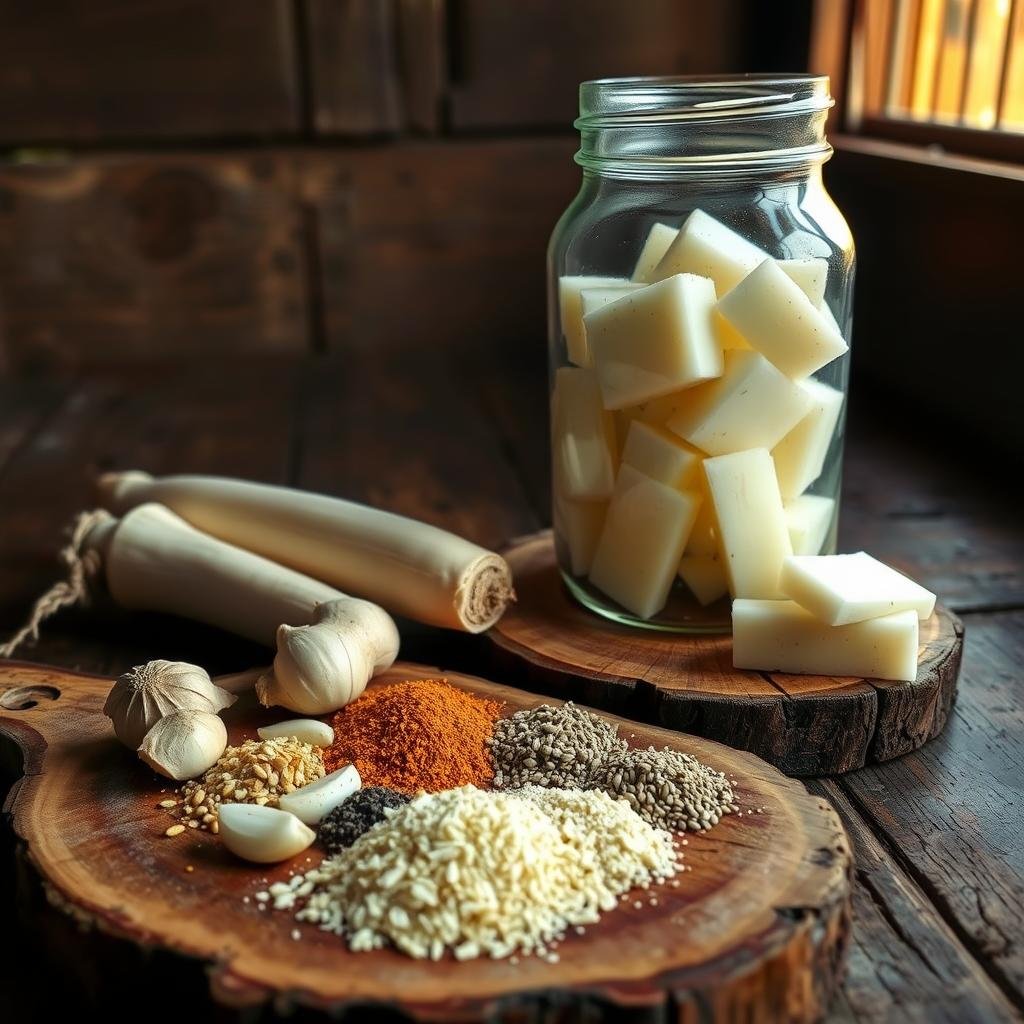
Making a tasty lacto fermented daikon starts with the right ingredients. This part lists what you need to start this tasty journey.
Fresh Daikon Radish
The main ingredient is the fresh daikon radish. It’s crunchy and slightly sweet, great for fermenting. Choose firm, unblemished roots for the best taste and quality.
Essential Seasonings
The right seasonings make your daikon radish taste amazing. You’ll need sea salt and water for the brine. For a spicy kick, add Korean red pepper flakes. Fermentation Recipes says use two tablespoons of each for the best flavor.
Optional Add-Ins
Want to make your lacto fermented daikon your own? Try adding garlic, crushed peppercorns, or dried dill. These add-ins bring more flavor and let you customize your dish.
Step-by-Step Guide to Making Fermented Daikon
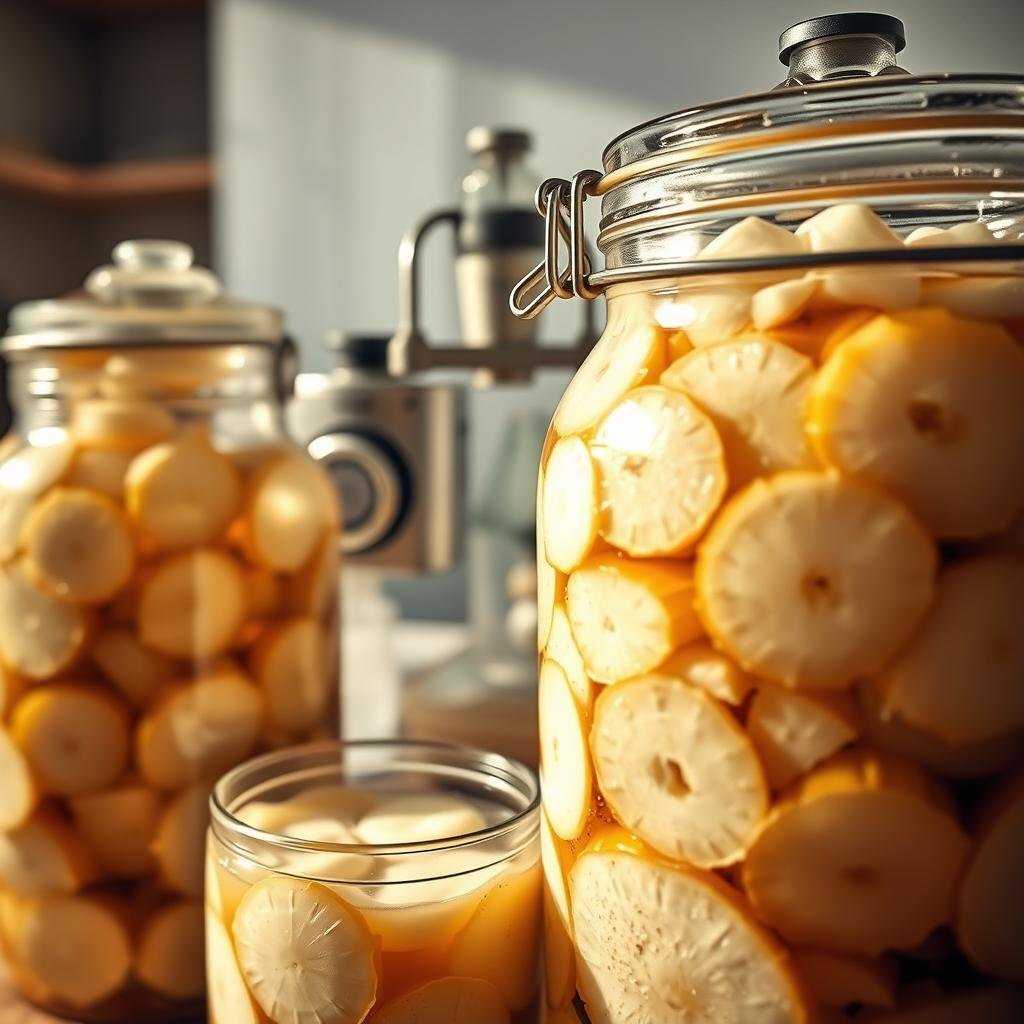
Making homemade pickled daikon is rewarding and tasty. This guide will help you from start to finish. You’ll learn how to prepare daikon, ferment it, and store it right.
Preparation of Daikon
Start with a fresh, firm daikon radish. It’s key for good fermentation. Clean it well, peel it, and cut it into equal pieces. This makes fermentation even.
Then, salt the daikon pieces. Let them sit to get rid of extra moisture. This helps with fermentation.
Fermentation Process
After prepping, start the fermentation. Put the salted daikon in a container like a mason jar. Make sure it’s fully covered in brine for a good environment.
Add seasonings like garlic or ginger for extra taste. Use an airlock lid or cloth to keep it clean. Store it at 65-75°F for 1-2 weeks to get the right tanginess.
Storage Tips
Proper storage keeps fermented foods fresh and healthy. Move the pickled daikon to the fridge in a sealed container after it tastes right. Cold storage slows down fermentation, keeping flavor and nutrients for months.
Check for spoilage often. Remember, fermented daikon gets better with time, getting more complex and tasty.
| Step | Description |
|---|---|
| 1. Select Daikon | Choose fresh, firm daikon radishes. |
| 2. Clean and Cut | Peel and slice into uniform pieces. |
| 3. Salting | Salt evenly to draw out moisture. |
| 4. Fermentation | Place in container with brine and seasonings. |
| 5. Monitor | Store at room temperature and taste regularly. |
| 6. Store | Transfer to the refrigerator to preserve. |
Troubleshooting Common Issues
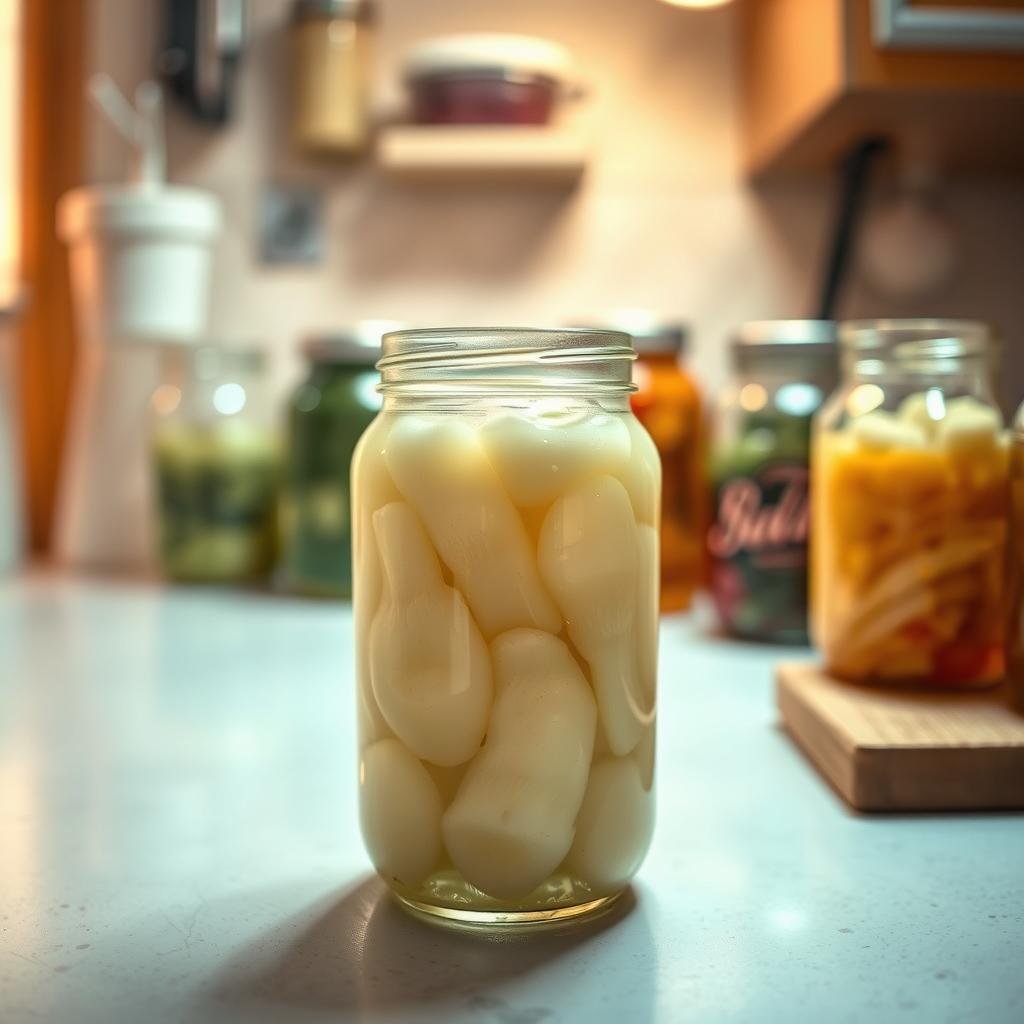
Fermentation can be rewarding, but sometimes it doesn’t work out. Knowing how to fix common problems can help you make great fermented daikon every time. We’ll talk about how to spot failed fermentation and how to fix too salty daikon.
Signs of Failed Fermentation
Recognizing failed fermentation is key. Look out for mold, which looks like blue, green, gray, black, or white fuzzy spots. If you see mold, throw out the whole batch and start over.
A bad smell in the brine is another sign. While a vinegar or sulfur smell is normal, a stinky smell means it’s gone bad. It’s vital to tell these smells apart to avoid eating bad fermentations.
Unusual color changes in your daikon can also mean trouble. For more help on these issues, check out this troubleshooting fermentation guide.
Fixing Overly Salty Daikon
Dealing with too salty daikon is another common problem. To fix it, you can rinse it in cold water to cut down on salt.
Another way is to add more fresh veggies to the jar. This spreads out the salt. But, it takes a few days for the veggies to soak up the salt.
Knowing how to handle these issues can save your batch from the trash. For more help, the troubleshooting fermentation guide has lots of useful tips.
Storing Fermented Daikon
Storing fermented daikon right is key to keep its health benefits and taste. It makes sure fermented foods stay tasty and healthy in your meals. This part gives important tips on keeping fermented daikon fresh.
Refrigeration Tips
Refrigeration is vital for keeping fermented daikon good. Use airtight glass containers to keep air out. The best fridge temperature is between 32°F and 39°F. This keeps your daikon fresh for longer.
It’s also important to check your fermented daikon often. Look for any flavor or texture changes. If you see mold, throw away the bad parts. Following these tips keeps your fermented daikon safe and delicious.
